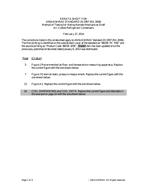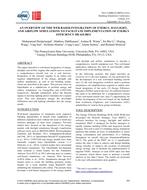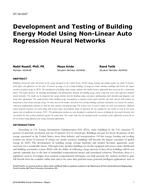This paper summarizes the results of an investigation to assess the impact of solar models used to estimate hourly global, diffuse, and direct solar radiation on annual building energy use. The building energy analysis is carried out by detailed whole-building simulation tools that used hourly Typical Meteorological Year (TMY) weather files. Annual energy use for prototypical office buildings with various geometric aspect ratios and window-to-wall ratios was obtained for several tropical sites. Nonsolar weather data for the same sites were obtained from the National Climatic Data Center (NCDC). Moreover, one-year TMY-formatted weather files developed from predictions of solar radiation from four models and from measured data are used in the analysis to determine the effect of the solar model on the annual energy use of prototypical office buildings. The four models include the Kasten model, Muneer model, Zhang and Huang model, and neural network-based model.
The results of the analysis indicate that the Zhang and Huang model, when used with site-fitted coefficients, outperforms the neural network model and the Kasten model for accurately predicting annual building energy use.
Units: Dual
Citation: ASHRAE Transactions, Vol. 113, pt 1, Dallas 2007
Product Details
- Published:
- 2007
- Number of Pages:
- 8
- File Size:
- 1 file , 1.6 MB
- Product Code(s):
- D-DA-07-058


